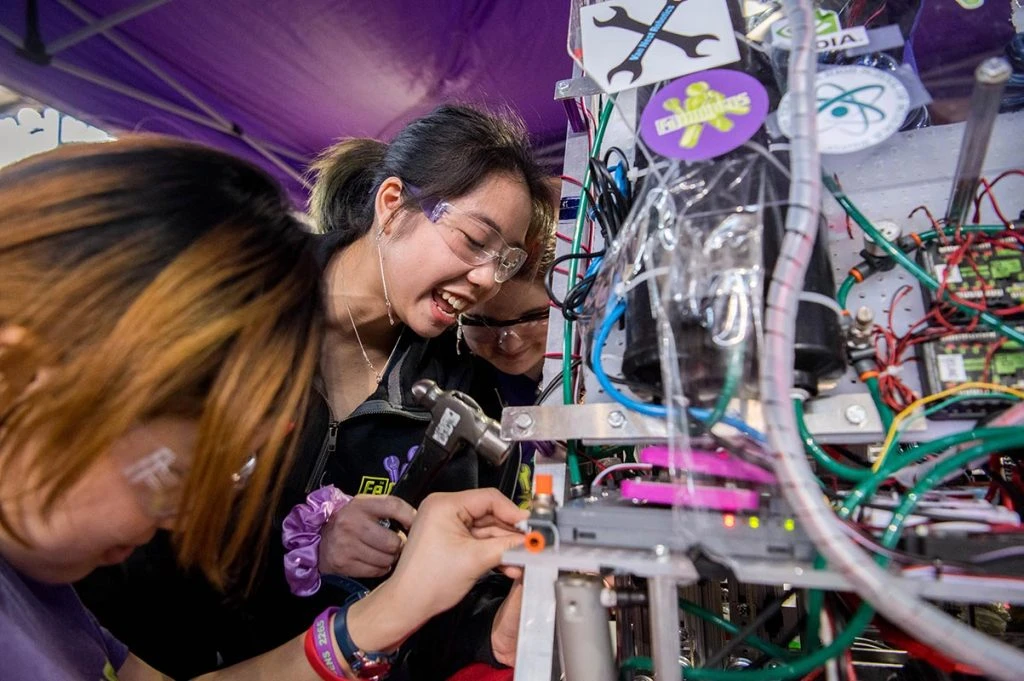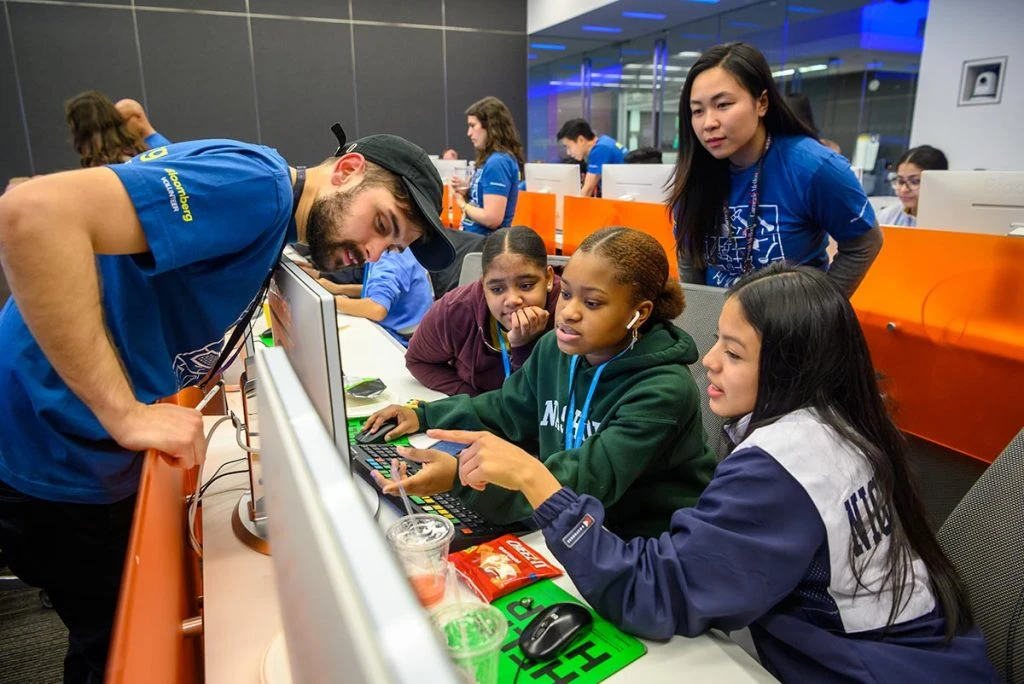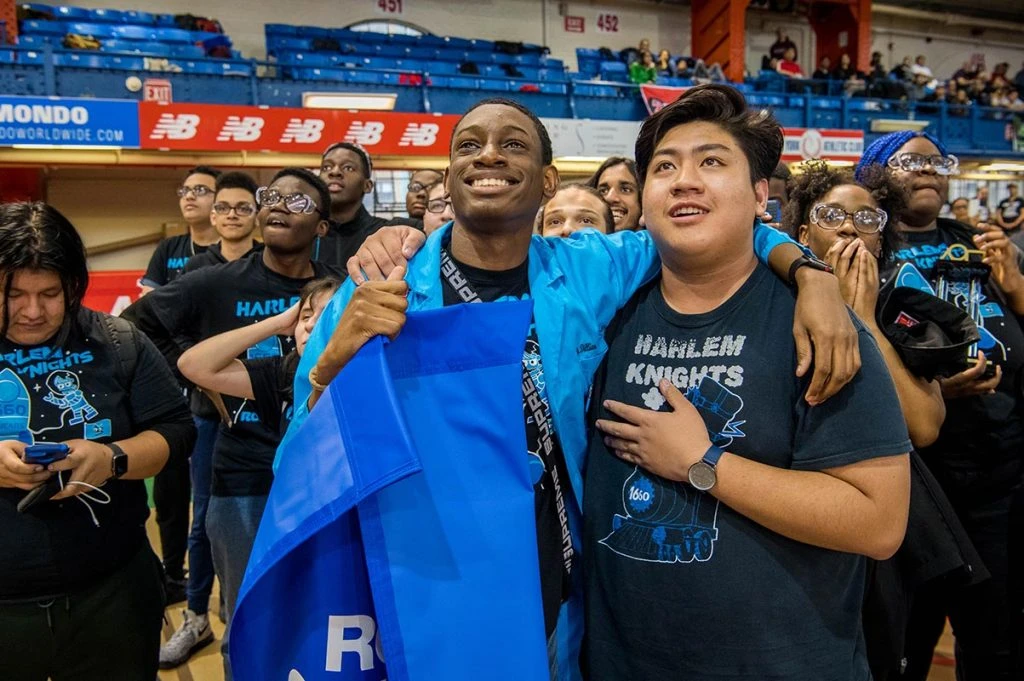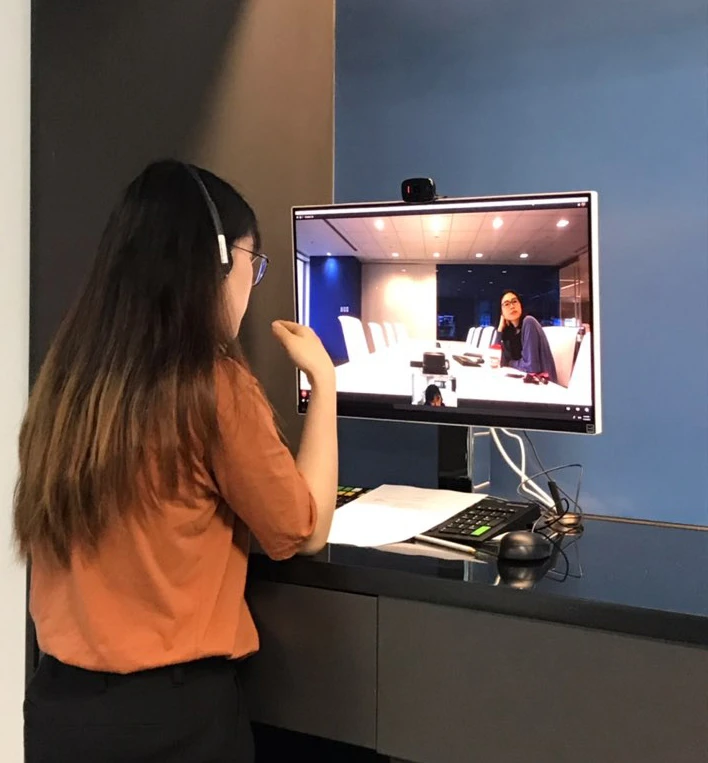How Bloomberg and its partners address STEM underrepresentation from all angles
July 08, 2020
In 2017, just 9 percent of college students who graduated with a computer science degree were Black. Only 10 percent of those students were Latinx. And this discrepancy goes beyond race. Although 58 percent of all college degrees go to women, only 2 percent graduate with a degree in computer science or another technology-related field.
Democratizing the scientific and technological fields is key to ensuring that product development of the future reflects the communities it intends to serve. That’s why Bloomberg’s Corporate Philanthropy is committed to partnering with programs that provide access, mentoring and career development for various underrepresented students and professionals interested in STEM. And with more than 6,500 engineers eager to use their expertise to help inspire the next generation of technologists, Bloomberg is equipped to help address the skills gap.
“I’ve witnessed students with little to no experience come to Bloomberg, learn new technologies, create a project or program for the company and present to senior leadership — all within a short period of time,” says Camille Gonzalez, a diversity recruiter for Bloomberg’s Engineering team and volunteer mentor. “There aren’t enough words to describe how proud I feel every time a student walks through our doors unsure of what they’re doing and leaving knowing exactly where they’re headed — to a career in STEM.”


“Every child deserves to grow up believing all opportunities are for them. Yet, one of the largest barriers to entry for underrepresented groups in STEM careers is an inability to envision a path to those roles,” says Nico Aiello, an engineer who is the co-creator of Bloomberg’s Startup Python Coding Bootcamp.
In the U.S., the Python Coding Program is a gateway to that path for students over the age of 13 who are affiliated with non-profit partners like iMentor, PENCIL, and Prep for Prep, which support students in our local communities. Students who don’t have access to coding programs in their high schools or through extracurricular programs can participate in this course designed by Bloomberg engineers. Similar to what is covered in an AP Computer Science course in high school, this course includes 14 classroom-style training sessions and a curriculum taught entirely in Python.


“We often think of STEM talent as innate, but it’s really a function of exposure,” says Tobias Wilson, another engineer who designed the program together with Aiello. “It’s critical that we work to make STEM inclusive, accessible, and equitable. This program is a small, but actionable, way to increase access to programming instruction.”
The Python Coding Program goes beyond the classroom to include special events, which are now transitioning to a digital platform that will be available to students in the fall semester. To date, 124 students have completed the program thanks to the support of 203 engineer mentors. Each of these students has been awarded a certificate and gained access to mentorship that will make it easier for them to take that first step into a tech career.
Tapping into teachers
Teach First is a non-profit working towards fair education for all school children in England and Wales. The United Kingdom wrestles with similar challenges surrounding diversity in STEM as the U.S.: they too face a serious gap in talent to fulfill the growing demands of the tech sector.
Director of Engagement at Teach First Rob Halkyard explains that “more than half of engineering and technology firms are concerned that the deficit of engineers is a threat to their business, and estimates suggest that a shortage of STEM skills costs business £1.5 billion a year.” The problem, he emphasizes, is likely to deepen. “The statistics are clear: to ensure a successful economy in a post-Brexit Britain, we urgently need to make STEM careers attractive to people from all walks of life.”


Bloomberg has partnered with Teach First to support the recruitment and retention of highly specialized STEM teachers in order to tackle educational disadvantage in the UK. Since 2003, Teach First have recruited and placed over 4,500 teachers in schools serving low-income communities.


Hands-on learning, while remote
With increased emphasis on remote learning, designing innovative virtual opportunities for students is key. Bloomberg’s engineering community — from London to Frankfurt — has been volunteering to support FIRST (For Inspiration & Recognition of Science & Technology) UK, a leading not-for-profit STEM engagement program inspiring students to be science and technology innovators, with similar efforts in the U.S.
Since COVID-19, the organization has innovated to design an open source simulator accessible by students worldwide. Alongside educational content developed by teachers, the simulator will provide opportunities for students to code, test, and iterate in a virtual environment. Free to access the simulator will be browser-based and run on common operating platforms and hardware, including Chromebooks — providing a lower-barrier opportunity to engage in STEM education while remote.
The flexibility and scalability of this resource will undoubtedly remain valuable, even as stay at home restrictions begin to lift. As schools in the UK and U.S. re-open their doors, Bloomberg will continue to support this much-needed initiative to bring in a new generation of voices and talent into the world of STEM.
Continued career counseling
Early access isn’t the full equation, particularly when addressing the gender gap in tech. Since women tend to start and leave tech careers (with one common reason being the pursuit of a better work-life balance), continued learning, mentorship and career advancement are a focus for retaining and re-engaging this cohort of talent.
Through partnerships with organizations like Cornell Tech’s Break Through Tech program in the U.S. and Women in Science, Engineering and Technology (WISET) in APAC, women interested in tech can gain both the in-classroom training to keep their skills fresh and workplace support. For example, WISET pairs university students with professional women in STEM roles for a nine-month mentorship, helping women gain skills in technical interviews, understand Bloomberg’s culture, participate in workshops, and build their networks.
“Access to female role models in STEM is very limited,” says Juwon Son from WISET, who manages Global Mentoring programs for women students in STEM. “We partner with corporations such as Bloomberg and provide opportunities to the students to meet role models so they can learn about the industry, companies and their culture, job expectations, and opportunities.”


This tailored approach is also a priority of our partners at the National Center for Women and Information Technology (NCWIT). NCWIT engages with companies to ensure that the workplace is conducive to the needs of working women. NCWIT brings together universities, companies, other non-profits, and government organizations to produce resources geared toward women in tech. By creating alliances in the classroom and at the industry level, NCWIT hopes to keep women engaged in tech from their education to their careers.
Terina-Jasmine Alladin, Manager at NCWIT, believes it’s crucial to have a varied group of colleagues in a workplace. “Anytime you gather a group of diverse people, there is a potential for magic, because you can guarantee that at least one person knows something you don’t,” she says. “In homogenous rooms, there is a lot of nodding and agreement and that can be good in some cases. Metacognition: this awareness of your own thought process is essential for innovation, but also for the soul; you just don’t get that kind of opportunity in homogeneous spaces.”